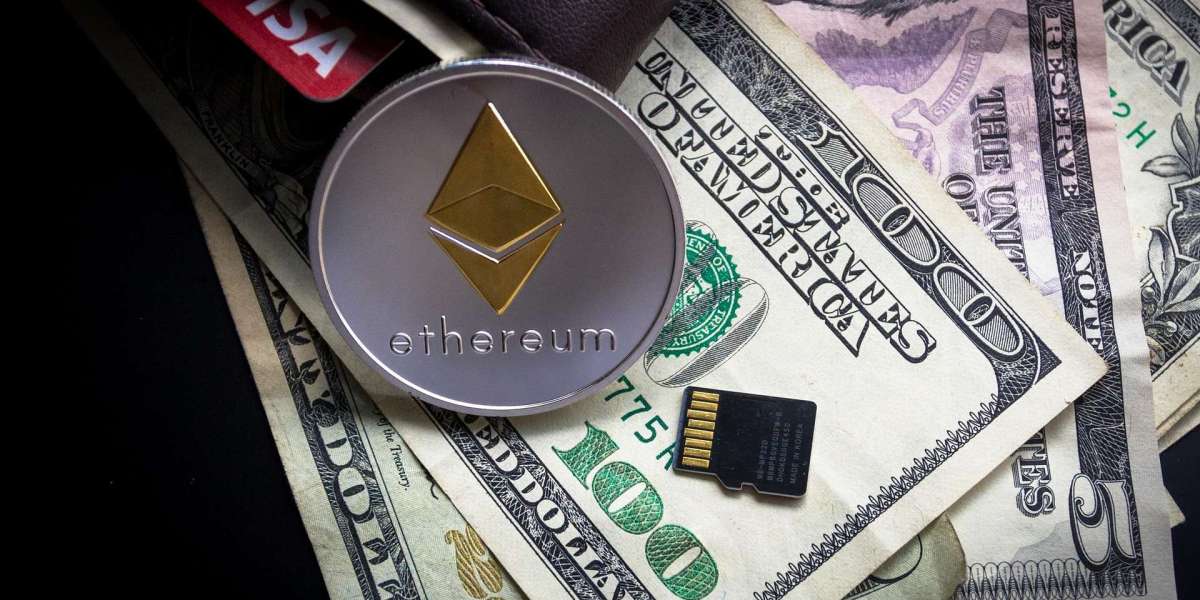Fintech apps have changed how people manage money, invest, and make payments. Apps like Paytm, Google Pay, Revolut, and Cash App are widely used for everyday financial tasks. But a quiet revolution is happening. Crypto wallets—once seen as tools only for tech-savvy crypto traders—are becoming serious competitors to traditional fintech apps. Thanks to innovations in Cryptocurrency Wallet Development, these wallets now offer services that go far beyond storing Bitcoin or Ethereum.
In 2025, crypto wallets are no longer just alternatives; they're becoming financial hubs. They are now offering features like decentralized finance (DeFi), token swaps, NFT access, cross-border payments, and even rewards programs. This transformation is pushing them into the same space as mainstream financial apps, and in many areas, they’re outperforming them.
What Makes Fintech Apps Popular?
Fintech apps have grown because they make financial management simple and fast. They offer a user-friendly interface and support for bank accounts, UPI transfers, debit cards, and real-time payment tracking. Features like budgeting, savings automation, and instant credit access are common.
They also comply with government regulations and provide consumer protection, which builds trust. Fintech apps usually integrate with existing bank systems, allowing easy access to fiat currencies like INR, USD, or GBP. Their broad accessibility, especially on smartphones, has allowed them to dominate markets in both developed and emerging economies.
The Evolving Role of Crypto Wallets
Crypto wallets were initially designed for one purpose: to securely store and manage cryptocurrencies. But as blockchain technology matured, wallets began to evolve into full-fledged financial platforms.
Today’s top crypto wallets are offering:
- In-app crypto purchases using fiat
- DeFi access like staking, yield farming, and lending
- NFT integration for storage and trading
- Cross-chain support for multiple blockchains
- DApps browser to access decentralized apps
They also focus heavily on self-custody, which gives users control of their funds without relying on third-party intermediaries. That’s a significant shift from traditional fintech, where the user is often just a data point in a centralized system.
Key Advantages of Crypto Wallets Over Fintech Apps
Global and Borderless
Crypto wallets allow users to send and receive money globally without needing intermediaries. Traditional fintech apps often rely on banks and payment processors, which can introduce delays, fees, and restrictions based on geography.
With a crypto wallet, someone in India can send USDT or Bitcoin to someone in Nigeria or Brazil within minutes, bypassing the international banking system altogether.
Full Ownership and Self-Custody
Fintech apps hold user funds in their systems, which means users technically don’t "own" their money in real-time. In contrast, most crypto wallets—especially non-custodial ones—give users full control. Private keys are held by the user, not a company or server.
This self-sovereign financial model is very appealing in 2025, especially in regions where trust in traditional banks is low.
Integration with Web3
Crypto wallets are the passport to Web3—the next version of the internet. Users can connect their wallets to decentralized finance platforms, NFT marketplaces, gaming ecosystems, and even identity management systems. Fintech apps don’t offer this level of interoperability with decentralized networks.
Earning Opportunities
Crypto wallets are giving users the ability to earn passive income. Whether it’s through staking tokens, providing liquidity in DeFi pools, or holding interest-bearing stablecoins, crypto wallets offer real ways to grow wealth beyond savings accounts or fixed deposits.
Fintech apps have recently started exploring rewards and cashback, but the earning mechanisms are still limited and mostly tied to centralized programs.
Programmable Money
Many crypto wallets are compatible with smart contracts—automated programs that run on blockchain. This means users can set conditions for payments, create trustless escrow, and automate entire financial workflows. Fintech apps still rely on centralized APIs and manual approval for such services.
Challenges That Crypto Wallets Must Overcome
Despite all these benefits, crypto wallets still face challenges. The average user may find crypto interfaces confusing. Wallets that support too many blockchains or tokens may overwhelm newcomers.
Also, the regulatory environment remains unclear in many countries. Fintech apps benefit from long-established legal frameworks, while crypto wallets still operate in a gray area in some regions. Security is also a major concern—while self-custody is empowering, losing a private key means losing access to funds forever.
Education, UI/UX design, and security standards are improving, but these are areas where crypto wallets still lag behind traditional fintech in terms of mainstream adoption.
The Future: Convergence or Competition?
We are entering a time where the lines between fintech apps and crypto wallets are beginning to blur. Some crypto wallets are adding support for fiat payments and virtual cards, while fintech apps are exploring ways to integrate blockchain features and token support.
Instead of one replacing the other, it’s more likely that both will evolve and learn from each other. The competition will drive innovation. Users will benefit from better control, more services, and improved financial freedom.
Conclusion
Crypto wallets have come a long way from being simple tools for digital coins. With the rise of DeFi, NFT trading, cross-border payments, and self-custody, these wallets are now strong competitors to traditional fintech platforms. They offer features that make financial systems more open, accessible, and innovative.
At WisewayTec, we are helping businesses and startups build the next generation of secure, scalable, and feature-rich wallets through our Cryptocurrency Wallet Development Services. Whether you're creating a DeFi wallet, a multi-chain NFT wallet, or a fiat-to-crypto hybrid wallet, our expert team provides cutting-edge solutions to stay ahead in the evolving digital finance space.
Frequently Asked Questions
What is the main difference between a crypto wallet and a fintech app?
A crypto wallet gives users control over their digital assets using blockchain technology, while a fintech app manages traditional currencies through centralized banking systems. Crypto wallets often support features like DeFi, NFTs, and self-custody.
Can a crypto wallet replace my banking app?
Not completely—at least not yet. Crypto wallets are great for digital assets, earning through DeFi, and cross-border transfers, but they may not offer features like bill payments, salary deposits, or credit scores that are tied to banks.
Are crypto wallets safe to use?
Yes, if used correctly. Non-custodial wallets give full control but require you to manage your own security. Using wallets with biometric security, backup options, and secure private key storage can reduce risks.
Can I connect a crypto wallet to my fintech app?
Some fintech apps now allow limited crypto support, but most crypto wallets are standalone. However, integration is increasing, and hybrid models are emerging where users can access both crypto and fiat features.
How do I choose the right crypto wallet?
Consider your needs—do you want to trade, stake, store NFTs, or simply send/receive crypto? Choose a wallet with strong security, good user experience, multi-chain support, and trusted development teams.














